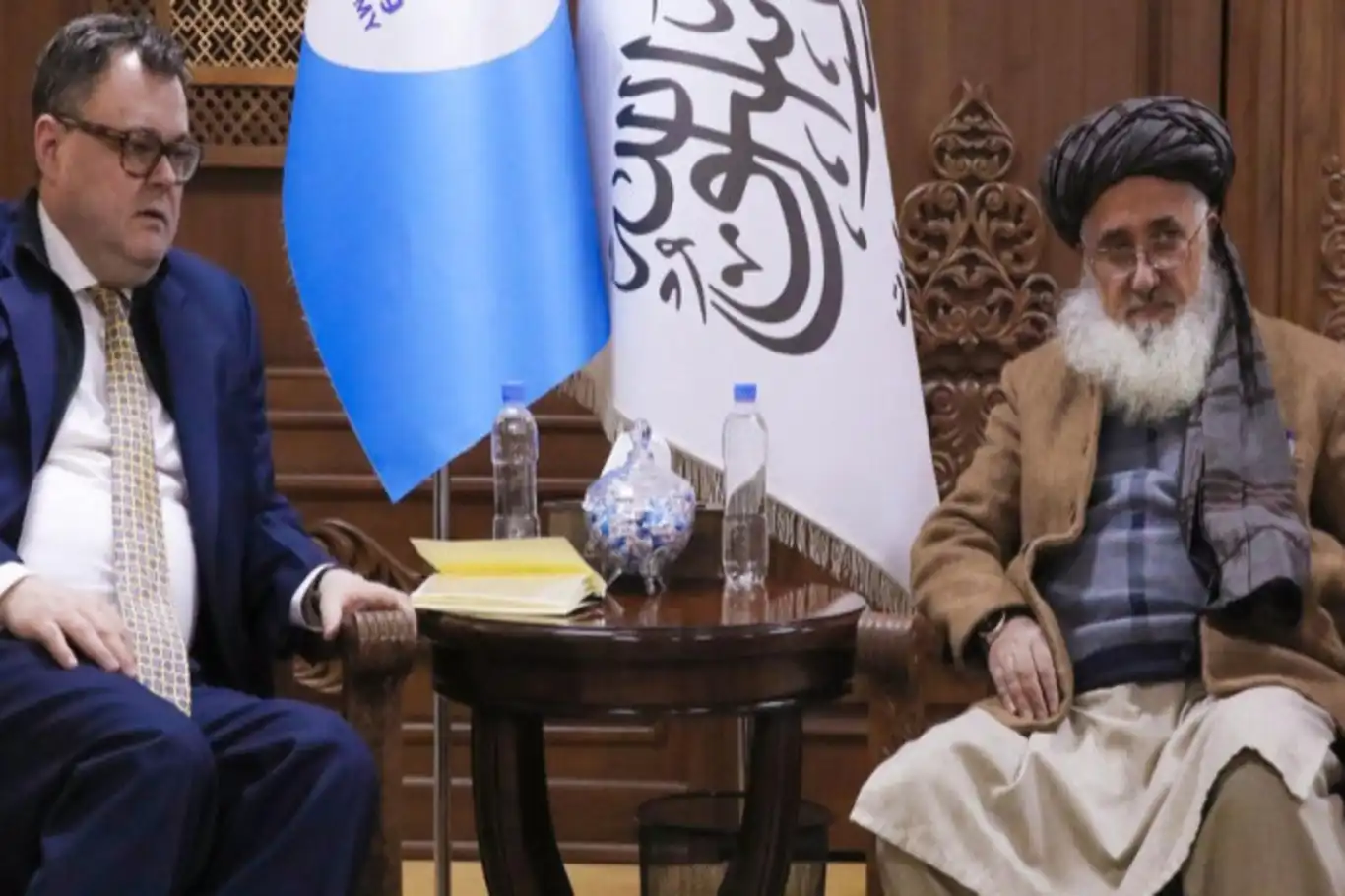Afghan Economy Minister discusses cooperation with Norwegian official


Qari Din Mohammad Hanif, Afghanistan’s Acting Minister of Economy, met with Pierre Albert Alsace, Norway’s Charge d’Affaires to Kabul, to explore opportunities for expanding economic and humanitarian ties between the two nations.
The meeting, detailed in a recent Ministry of Economy newsletter, highlighted Afghanistan’s economic progress under the Islamic Emirate of Afghanistan (IEA) and the urgent need for international support to address ongoing challenges.
During the meeting, Alsace commended the IEA’s efforts to manage economic programs over the past three years, despite facing significant hurdles, including economic sanctions, frozen foreign assets, and the suspension of international development aid. He acknowledged the IEA’s strides in maintaining economic stability under these constraints and assured continued humanitarian assistance from Norway to the Afghan people.
"Norway recognizes the efforts of the Islamic Emirate in navigating complex economic challenges," Alsace said, emphasizing Norway’s commitment to supporting Afghanistan’s humanitarian needs.
Minister Hanif stressed the importance of shifting international focus from humanitarian aid to development assistance, arguing that such efforts are essential for building sustainable economic infrastructure. "Development aid is crucial for reducing reliance on foreign assistance, creating job opportunities, and achieving economic self-sufficiency," Hanif said.
He outlined the effectiveness of the IEA’s economic policies, which have stabilized the Afghan currency, controlled inflation, and boosted both exports and imports. Hanif also highlighted improvements in national revenue, domestic production, and regional economic cooperation, noting that these advancements have created a more favorable environment for attracting investments in large-scale projects.
Hanif emphasized that the long-term solution to Afghanistan’s economic woes lies in leveraging internal capacities and revenue sources. He advocated for targeted investments in both public and private sectors as a pathway to medium-term economic growth, stressing that such measures would help address systemic issues like unemployment and poverty.
However, the minister also addressed the severe impact of ongoing financial and banking restrictions, as well as the freezing of Afghanistan’s foreign reserves. These measures, he argued, have exacerbated economic hardship, driving up unemployment and poverty levels. "The lifting of economic sanctions and the release of Afghanistan’s frozen reserves are critical to improving the economic and living conditions of our people," Hanif urged, calling on the international community to take action.
The meeting underscored the dual challenges of maintaining economic stability in the face of external restrictions and securing international support for long-term development. While Norway’s humanitarian assistance provides immediate relief, Hanif’s call for development-focused aid reflects a broader push for sustainable solutions that prioritize Afghanistan’s economic independence.
As Afghanistan navigates these challenges, the IEA continues to seek partnerships that can bolster its economic recovery. The outcome of discussions with Norway and other international actors will be closely watched, with implications for Afghanistan’s economic future and the well-being of its citizens. (ILKHA)
LEGAL WARNING: All rights of the published news, photos and videos are reserved by İlke Haber Ajansı Basın Yayın San. Trade A.Ş. Under no circumstances can all or part of the news, photos and videos be used without a written contract or subscription.
Venezuelan President Nicolás Maduro has formally requested military support from Russia amid growing tensions with the United States in the Caribbean, The Washington Post reported, citing confidential U.S. government documents.
Russia's Defense Ministry announced on Friday that its troops have seized control of seven Ukrainian villages over the past week, marking continued advances in a conflict now in its 1,345th day.
Hundreds of thousands of ultra-Orthodox Israelis took to the streets in the occupied territories Thursday to protest Israel’s new mandatory military service law, bringing West Jerusalem to a near standstill.
At least 21 people lost their lives after a massive landslide struck the highlands of Papua New Guinea early Friday morning, local authorities and media reported.